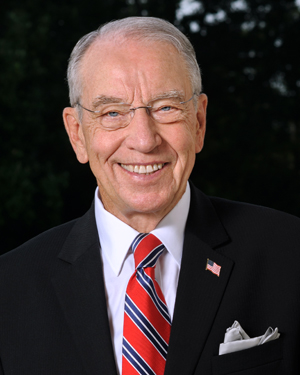The U.S. and the EU both want a new trade pact to bring together two of the largest economic forces in the world, but agriculture is standing firmly in the way.
Influenced by decades of ag and food policy differences between the U.S. and Europe, European negotiators appear certain that including agricultural issues would essentially kill the talks.
“The idea was to have a quick deal,” Sylvain Maestracci, agriculture counselor at the French Embassy in Washington, D.C., told Agri-Pulse. “We just want to have something quick.”
Both the U.S. and the EU have now released their official list of goals in upcoming trade talks. On the U.S. side, negotiators are demanding the Europeans make big changes in regulations preventing the U.S. from exporting beef, pork and grains. Americans also want the Europeans to accept that genetically modified plants can be approved quickly, beef from cattle can be treated with hormones, and poultry cleaned with chlorine is safe.
The Europeans are not even willing to talk about any of it.
“We are not including agriculture,” European Trade Commissioner Cecilia Malmström said in a press conference last week to debut the EU proposal for trade talks.

European Trade Commissioner Cecilia Malmström
European negotiators were so certain that political leaders in Germany, France and other EU countries would not agree to the kinds of changes being demanded by the U.S. they did not seek a mandate to negotiate them, government and industry sources say.
“To change fundamentally our food safety rules is very difficult,” said Jesus Zorrilla, the chief agriculture counselor for the European Delegation to the U.S. “The discussions in July were that if we do agriculture … it would be a long process.”
If the U.S. were only demanding that the EU negotiate on agricultural tariffs, those talks could go relatively quickly, says Joe Glauber, Senior Research Fellow at the International Food Policy Research Institute and former chief agriculture negotiator for the U.S. Trade Representative.
“Those are trade-offs that are made all the time in negotiations,” he said about tariffs.
Glauber, who represented the U.S. during years of the “Doha round” talks to try to form a new World Trade Organization trade pact, said he quickly learned that, for the most part, Europeans do not treat what they consider food safety policy as simply protections for domestic industry.
“In the Doha talks, we were negotiating access into the European market on a whole variety of products, but these non-tariff barriers were the real stumbling blocks,” Glauber said in an interview. “They were stumbling blocks 10 years ago and they are still very much stumbling blocks.”
Products like the growth promotant ractopamine in swine are generally accepted in the U.S., but remain food safety concerns in Europe for reasons that stretch back decades, says Maestracci. At the core of Europeans' food safety fears is their experience with bovine spongiform encephalopathy (BSE), more commonly known as mad cow disease.
The always-fatal brain-wasting disease that can be spread to humans first surfaced in the United Kingdom in 1986, but quickly spread through Europe, where humans contracted it as government officials tried to calm fears.
“We had problems with mad cow disease in the '90s when public authorities said the disease was under control and the public did not trust them,” Maestracci said. “When you break a trust, it is always very difficult to get that trust back.”
But European leaders have spent decades trying to do just that, including adopting the controversial “precautionary principle” as the foundation of food safety in 2002. The U.S. Chamber of Commerce, which is critical of the policy whether it's used in relation to biotech crops or global warming, offers this definition: “The precautionary principle says that when the risks of a particular activity are unclear or unknown, assume the worst and avoid the activity. It is essentially a policy of risk avoidance.”
Along with the breaking of the public trust, the food-safety disaster of the '80s and '90s may have also contributed to the rise in power of nongovernment organizations at a level never seen in the U.S., where large agribusinesses and powerful farm lobbying groups play significant roles in policy creation.
“In Europe you have very powerful food and environmental NGOs,” the French counselor stressed. “The power of the food and farm industries is (weaker) than in the U.S. In Europe our policy is more consumer-driven.”
Nevertheless, the Trump administration insists that it can get Europe to change its ways. Senate Finance Committee Chairman Chuck Grassley, R-Iowa, is adamant that Congress will not approve any trade pact that does not include agriculture.

Sen. Chuck Grassley, R-Iowa
“I don’t know how anybody in Europe that wants a free-trade agreement with us expects it to get through the United States Senate if you don’t want to negotiate agriculture,” Grassley told reporters.
That warning was not enough to convince Malmström, who met recently with Grassley. If there’s any chance of a speedy U.S.-EU trade pact, she said she explained to the Iowa senator, agriculture must be left out of the equation.
But there is a way to force Europe’s hand, Grassley said, and that’s the threat of hitting Europe with steep tariffs on cars and car parts. The U.S. Commerce Department is expected to make a ruling soon on whether or not so-called “Section 232” tariffs are warranted to protect U.S. national security.
“I know Europe is very afraid of it,” Grassley told reporters last week. “It’s probably the only thing that will bring Europe to the table in a reasonable way.”
But such a drastic action would do more harm than good, Rep. Ron Kind, D-Wis., told Agri-Pulse. Kind is a member of the House Ways and Means Committee's subcommittee on trade.
“If the president wants to go down that path, there’s consequences on our side too,” Kind said. “He needs to be very careful. I would not advise that strategy because it only escalates the retaliation and makes it harder for people to come together in good faith and negotiate what needs to be negotiated.”
The EU’s Malmström warned that the car tariffs would not force the EU to relent, but would torpedo the trade talks and spur retaliatory tariffs.
For more news, go to www.Agri-Pulse.com


